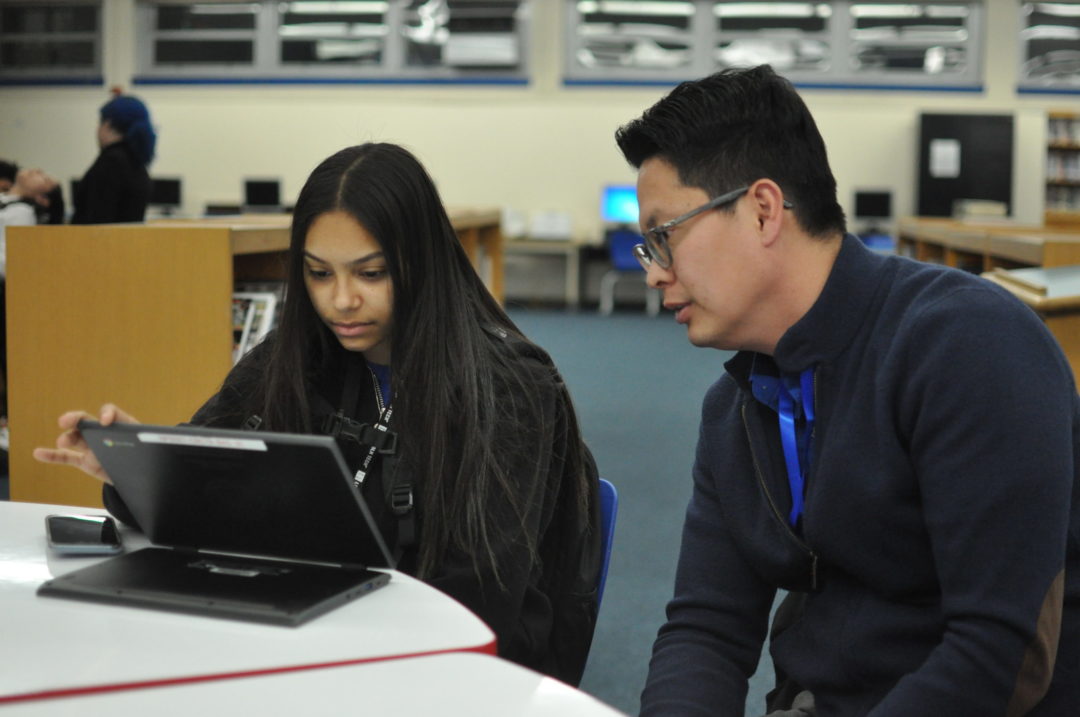Only about 35% of Newark high school seniors had completed the FAFSA as of January, said Reginald Lewis, executive director of the Newark City of Learning Collaborative, one of the organizers of the challenge. He hopes that percentage will get closer to the campaign’s goal of 70% with other events scheduled in coming months.
Nationally, about 60% of students completed the form last year, while Newark Public Schools had an average completion rate of 63.3%. Campaign organizers hope that helping students will result in a 10% increase in completion rates in Newark by June.
“It’s very clear that high schools with high rates of students of color and low-income students have low FAFSA filing rates,” said Ellie Bruecker, a fifth-year doctoral student at the University of Wisconsin-Madison who researches FAFSA filing. “Lots of those students are eligible but don’t fill out their FAFSA. Filing rates are higher at wealthier schools, where they might not be eligible for federal aid.”
More than one out of four Newark residents lives in poverty. Poor students also are far less likely than their wealthy peers to earn college degrees, and just 19% of Newarkers have college degrees, compared with 45% of New Jersey residents and 40% of U.S. adults.
Students often don’t complete their federal aid application because they think they’re ineligible for financial aid or don’t know how to complete the form. And even after students submit their application, problems can arise, especially if they are from immigrant families.
“If something is unclear in your FAFSA, you’re flagged to verify it,” Bruecker said. “That process has to be more challenging to verify for students who don’t have parents who attended college in the United States or students with parents who didn’t complete their taxes.”
“The challenge we’re having right now is that I think there are a lot of parents who come to the United States from other countries who don’t have some paperwork,” said Barringer parent liaison Charles Shepherd. “So students don’t have the information or proper documents to fill the forms out.”
He said about 50 of the 450 seniors at Barringer have started filling out their federal aid application for the next school year.
Even though the FAFSA is offered in Spanish, most of the six families who attended Tuesday’s event needed translators to complete their application. The Newark City of Learning Collaborative trained bilingual volunteers to help students, Lewis said.
“The form is really complicated for native English speakers. It’s complicated for me, and I’ve been studying it for five years,” Bruecker said. “Trying to navigate it when English is not your native language I would imagine is incredibly difficult.”




